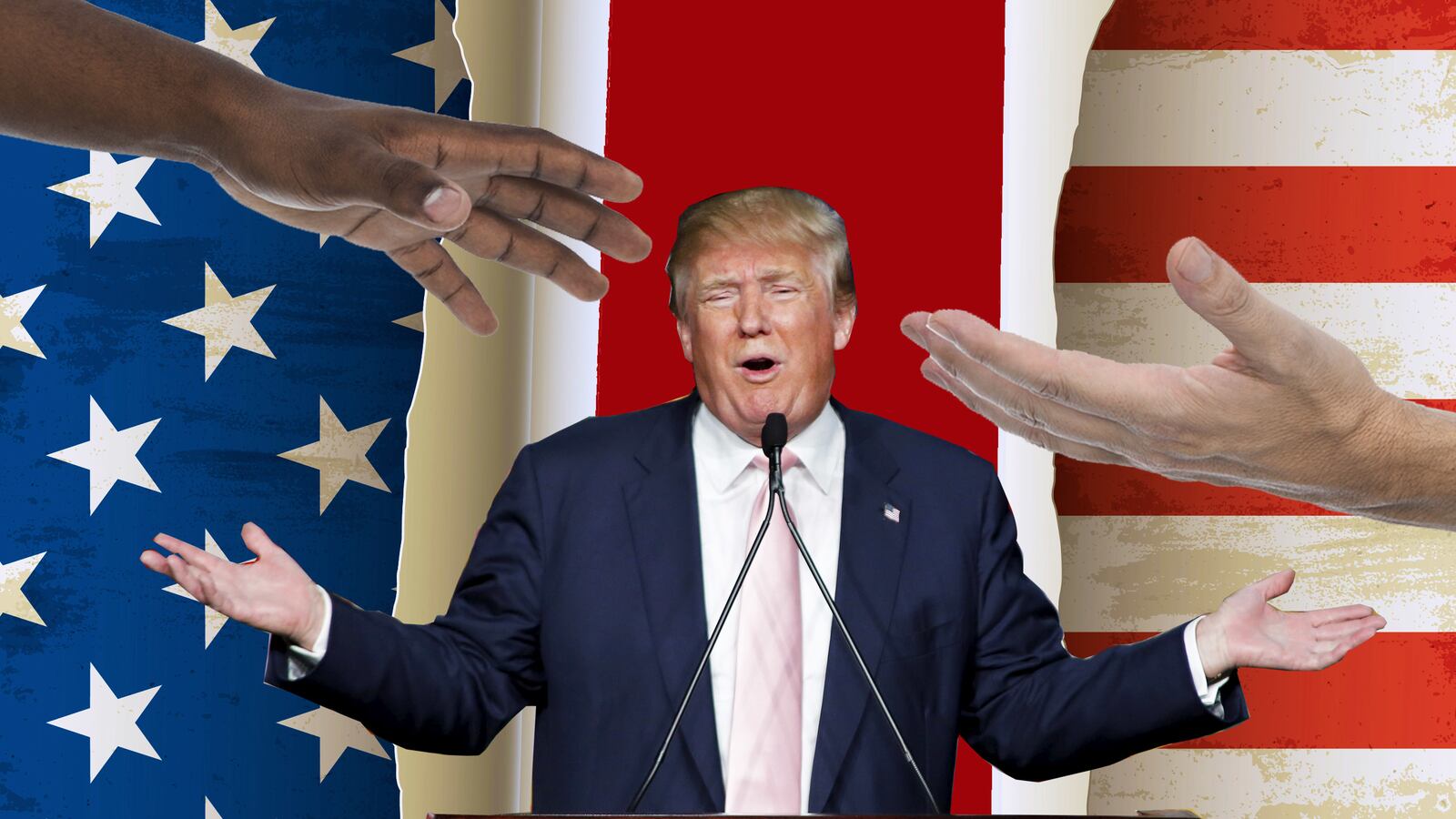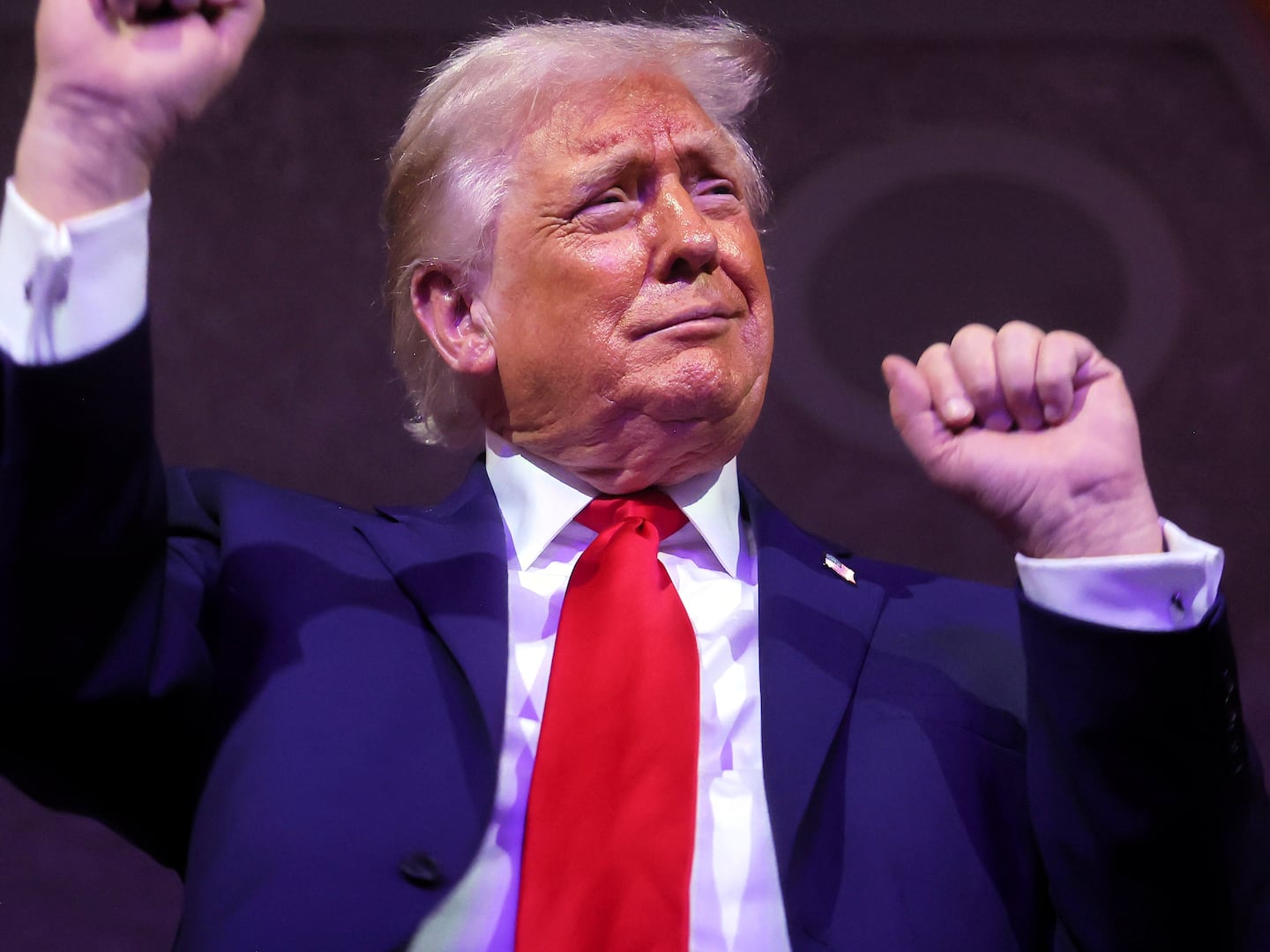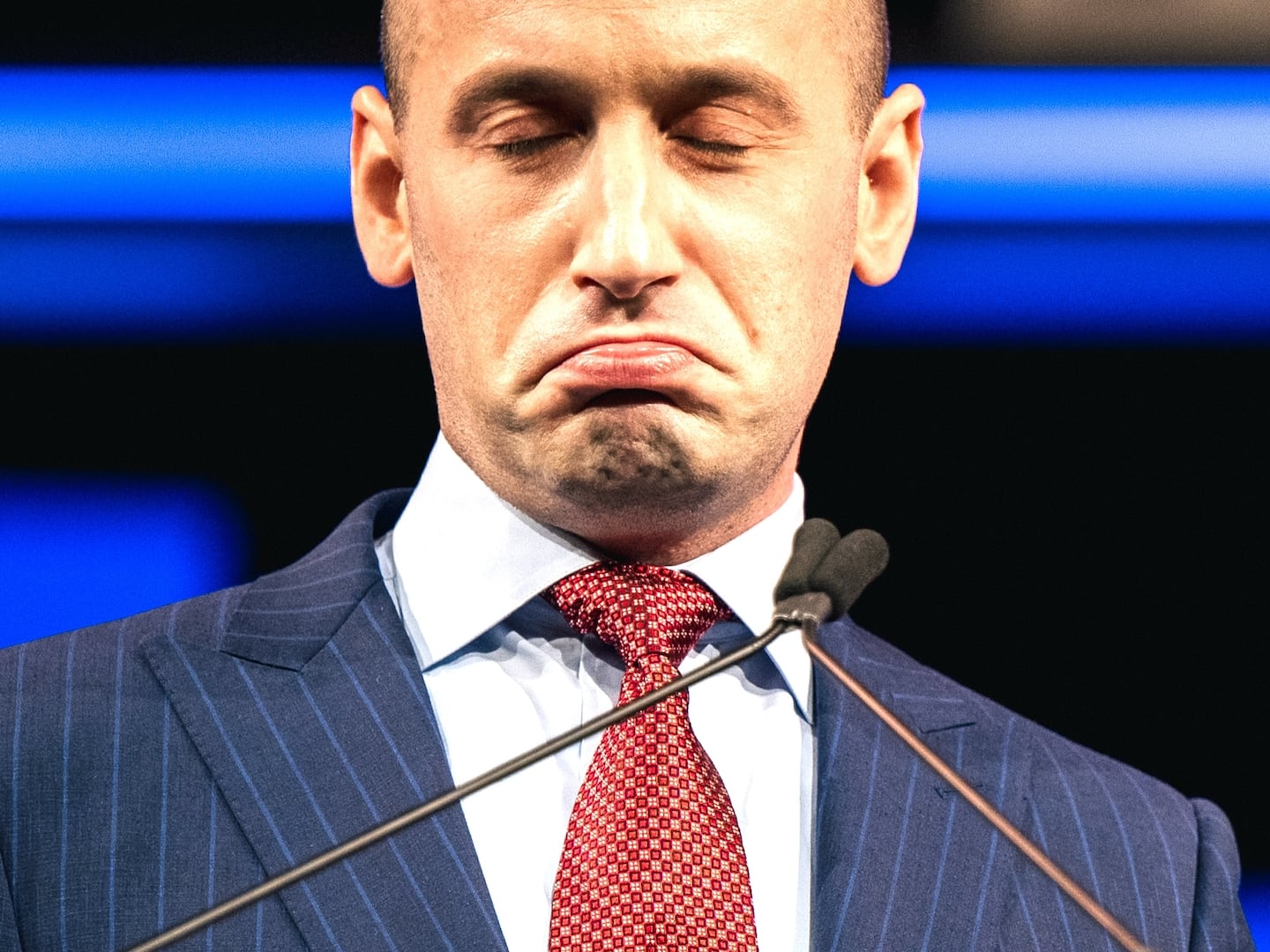Donald Trump’s presidential candidacy has provoked one of the largest splits along educational and class lines among white voters in modern history. His success with poorer, less educated white Americans (particularly white males without college degrees) represents the culmination of a longstanding trend whereby less educated white voters have traditionally voted Republican. By contrast, racial minorities are solidly in the Democratic camp – even more so this election cycle. Call it the Trump effect.
And yet if there are two groups that theoretically have more in common with each other than they do with the two multi-millionaires seeking the presidency this time around, it is the white working poor and racial minorities. For instance, the daughters and sons of white male Trump supporters are much more likely to share the uncertain economic existence of the children of a poor black Hillary Clinton supporter than they are to share the promising and extremely privileged future of Chelsea Clinton or any child with the last name Trump. So will there ever be a time when the poor and working class will unite across racial lines?
I have been pondering that question since seeing the film Free State of Jones, based on the true story of Newton Knight. Knight was a Confederate soldier who became fed up with the exploitation of poor Southerners by the Confederate leadership and subsequently led a band of rebels against the Confederacy that included runaway slaves. A key turning point for Knight came when he learned that the sons of wealthy plantation owners would be excused from battle based on the number of slaves their fathers owned. Shortly afterward, a young man from Knight’s less privileged family was killed in the Civil War. (Wealthy kids being able to dodge military service? Hmmm. That sounds familiar.)
We all know that the alliance between poor whites and poor blacks in the South didn’t last long. Because as the film reminds us, the era of Reconstruction following the Civil War was in many ways just as bad as the era that preceded it. There may not have been chains anymore, but thanks to a slew of unjust laws and the culture of fear that accompanied them (often in the form of Klan hoods), black Southerners found themselves enslaved economically, emotionally, politically and psychologically. Meanwhile, poor whites found themselves poor. But in comparison to their black counterparts at least they rarely found themselves lynched.
Over the ensuing decades, it seems, this would come to embody the great divide between poor Americans of different races. As a poor white character on the civil rights-era series I’ll Fly Away once lamented, skin color was the only thing that kept him from being at the bottom of society’s barrel.
While being poor is not easy for anyone (hunger pains don’t discriminate), historically speaking, a poor white person didn’t have to presume his poverty came with a death sentence. By contrast, being born poor, black, and particularly male, and particularly in the South, was more than enough to know that you were a walking target. And as countless victims of lynching throughout history have proved if you were black, male and poor and encountered the criminal justice system in any way, shape or form you were more likely to pay with your life.
Of course there is a strong case to be made that not much has changed. Yes, lynching is no longer a norm, but paying with your life has simply taken on new forms. Studies confirm that racial inequity continues to permeate our justice system, condemning countless black men to the revolving door of the prison system, or worse, a gurney. Black men are more likely to be sentenced to prison terms 20 percent longer than whites for the same crime and are twice as likely to be sentenced to the death penalty.
There has been change, yes. But a lot of it hasn’t been for the better.
Increasingly, poverty has become a death sentence for poor whites as well. In recent years the death rates of poorer, less educated, middle-aged whites has skyrocketed. The causes include substance abuse and suicide. But something else has begun to change.
The role of class in our criminal justice system has finally begun to get the attention it deserves. The outrage directed at the ridiculous slap on the wrists given to “affluenza” teen Ethan Couch, and Stanford rapist Brock Turner, has triggered a long overdue conversation among Americans of all races about our country’s two-tiered justice system – one for the privileged and one for the rest of us -- that racial minorities have long known exists.
And more prominent white Americans have begun to join calls for criminal justice reform. So if black Americans and poor white Americans are increasingly finding themselves in the same boat, then what explains the Trump divide?
Well in the same way that there were Southerners who didn’t realize that freedom-seeking slaves weren’t to blame for the war, there are still working-class whites today who don’t realize that racial minorities are not to blame for their woes. A system of social and political inequality not created by poor people or minorities is. But the Donald Trumps of the world are doing a brilliant job convincing many desperate people that other desperate people are to blame for their circumstances.
So will we ever experience another Free State of Jones style multi-racial coalition of rebellion built on economic interests? In a brief interview the film’s director Gary Ross, said the current presidential election is proof that “a tragedy of America [is] that cultural divisions can prevent economic alliances.” But he added that, “The film shows us that one can engage racial and economic issues simultaneously, and that the first step toward an economic alliance is to deal with the racial issues that divide us.”
Hopefully it won’t take another actual war to do that and to get lower-income Americans to unite across racial lines. But I suspect that as this election goes on, Trump’s less privileged supporters may soon come to realize that a man born into privilege who will never truly understand their plight and has not lifted a finger to raise any person out of poverty besides his wives, is simply using them to do his dirty work – much like the plantation owners did a century and a half ago.






